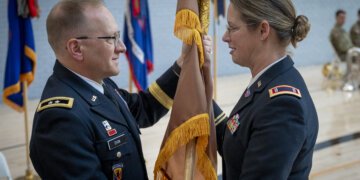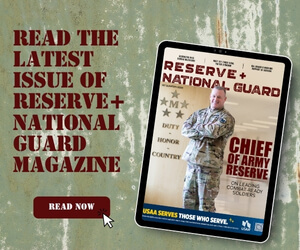When Cindy Meili’s husband served an unaccompanied vice commander tour overseas during their youngest son’s senior year of high school, she was poignantly aware of all the family milestones her husband would miss. But instead of lamenting the time lost, Meili was spurred to help other families like hers.
“I lay awake many nights during my husband’s absence, searching how I could get involved further to try and ease the burden on military families that were experiencing the same challenges my family had been facing for decades,” she said.
That search led her to apply for an advisory board position with the Military Family Advisory Network (MFAN), where she was just appointed to the newest cohort of advisors and will serve a two-year term.
Shannon Razsadin, MFAN president and executive director, oversaw the selection process for the incoming board and said it’s comprised of military and veteran spouses from throughout the country.
“Our advisors are leaders, changemakers, and champions for military families in their community and around the world,” Razsadin said.

Meili is particularly passionate about expanding data-driven analysis of military families and their needs. As a member of the advisory board, she will inform research, programming and priorities and help to connect the stories of military families with public and private sector leaders to make lasting change.
This fall, the group will launch its national Military Family Support Programming Survey, which will steer priorities as the advisory board moves forward.
The board also will oversee connecting military families with resources.
In the wake of the COVID-19 pandemic, MFAN launched the 1 Million Meals Challenge. The program’s goal, according to Razsadin, is “to combat military hunger across the nation.” Food relief is provided through distribution events, connecting families to ongoing support and resources and conducting research to determine and address underlying factors leading to food insecurity among military families.
The 1 Million Meals Challenge was a direct response to the havoc wreaked on military families, Razsadin said.
“For the actively serving component, there was at least some pay coming in,” she said. “However, for some guard and reserve families, the civilian income was lost or severely compromised.
Meili knows first-hand many of the other challenges families of the reserve component face.
“As a regular Air Force active-duty family, we had consistent access to the myriad of family programs offered on active duty military installations,” Meili said. “ The level of support my family became accustomed to on regular active duty diminished with the move to the Air National Guard.”
Guard families, according to Meili, face the “same day-to-day challenges” as those in active duty.
“Guard training and readiness requirements are identical to the active duty, but must be accomplished in a compressed time period.,” she said.
Her hope is to raise awareness among policy makers that “a military family is a military family.”
“When there is not consistent funding or regular access to critical family programs, it creates a heavy burden weighing on our military members and their families,” Meili said. “Through raising awareness we can better understand and work on shifting the mindset that everyone has equal funding and support to become mission ready.”
For more information about MFAN, visit the organization’s website.
Kate Lewis has written for The New York Times, The Washington Post, and is the monthly book critic for Military Families Magazine. Find her online @katehasthoughts.
Read comments







































